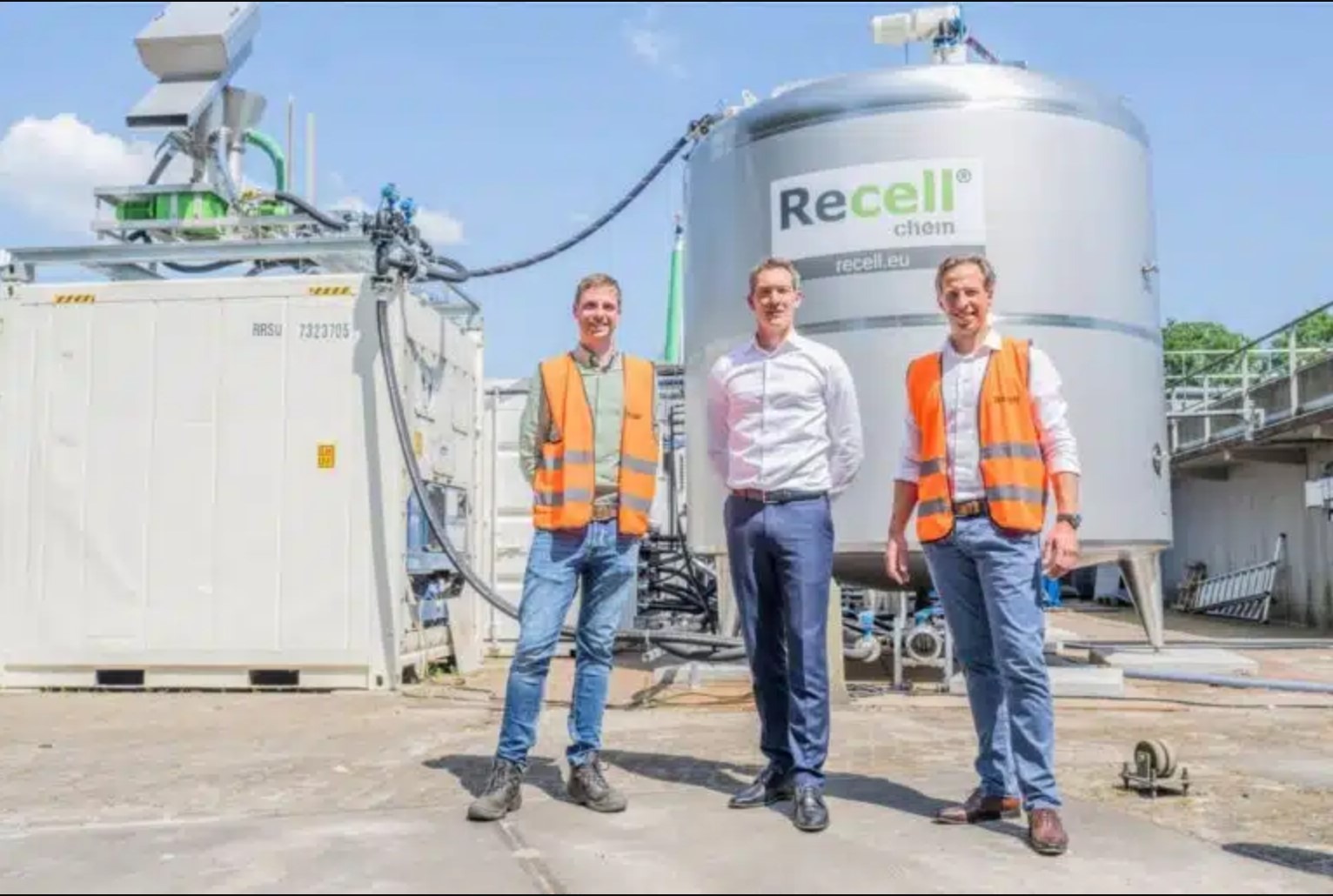Want to know more about this article?
Recell cellulose greens the chemical industry
On June 15th, Recell opened a demo factory in Leek. Pushing a button, provincial deputy IJzebrand Rijzebol gave the official starting signal. Recell extracts cellulose from residual streams and transforms it into a new stream of high-quality, green raw materials for the chemical industry through a unique process. And they do it on a large scale. With this innovative technique, Recell succeeds in reducing both CO2 emissions and waste costs in a circular and sustainable manner.
Recell, in partnership with other companies, has developed a method to isolate cellulose from various residual and waste streams. Then, they convert it into high-quality glucose molecules. These molecules serve as the basis for many chemical applications on an industrial scale. Glucose, or sugars, serve as sustainable building blocks for bioplastics and other products. With this innovative method, cellulose-containing and discarded volumes from the paper, cardboard, textile industries, as well as sewage treatment plants can be reintroduced into the economy, increasing their market value.

Green alternatives
Erik Pijlman, founder and CEO of Recell, says, “The chemical industry is looking for green alternatives of these molecules, which were previously mainly derived from fossil sources. Many parties often consider agriculture for these alternatives. But that would create competition with food production. Not to mention the time, energy, and emissions required to produce such green raw materials.”
Demo factory as a stepping stone to large-scale production
The demo factory currently operates at the sewage treatment plant in Leek. “That’s where the conversion to glucose from various waste streams is being optimized,” Pijlman explains. “The fact that the Noorderzijlvest Water Board provides us with their premises and wastewater is fantastic. With our technique, we extract cellulose from waste and demonstrate it. It’s a step towards much larger applications and larger factories.” For Recell’s lab team, the development was a process of trial and error. Technical manager Yme Flapper says: “Fortunately, our team has the exact expertise and experience to produce the right quality of green raw material. It’s a tremendous achievement, and the recognition from the green chemical industry strengthens our innovations.”
Waste becomes a raw material
“Waste becomes a raw material, and it’s the first time worldwide that so much green raw material is produced from cellulose,” says Ian Jordens, commercial director. “At the same time, we’re working on the first scaled-up factory with a ‘small’ capacity of 50 kilotons. The potential is much greater. We have mastered the technique to such an extent that we can even compete on price with the alternatives. In the interest of greening the entire chain, we collaborate with various chemical companies.”
Recell produces building blocks for the green chemistry, construction, infrastructure, and agro sectors based on reclaimed cellulose from various residual streams. The aim is to replace fossil resources such as oil, gas, steel, and concrete in order to make a positive contribution to climate issues.